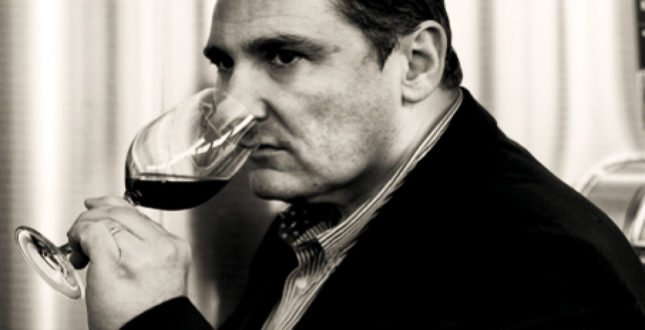Can you tell us briefly about your professional journey so far?
After completing my studies in Bordeaux, I immediately joined Michel Rolland’s oenological consulting firm. As you know, Rolland is an internationally renowned and influential wine expert who is often called the “king of the blend”. Following that, I moved on to found my own consultancy.
When you come from a winemaking family, you often start out by gaining an in-depth understanding of your own vineyard, of which you then gain very specific expertise. Because I don’t come from such a background, I have a much wider understanding and approach to oenology. Indeed, my first job gave me the opportunity to work around the world, be it across Europe (Spain, Portugal, etc.), but also in Argentina, which has a long winegrowing tradition, and Brazil, whose wines are lesser-known because they are not exported as much.
How did you become the oenologist at Château Malromé ?
I used to work with Charles Estager at Lalande-de-Pomerol. Charles asked me to join him when he took the lead at Malromé. I therefore had the great honour of becoming a part of the project right from its inception in 2013.
We work in tandem, taking the weather conditions into account, touring the vineyards together, taking stock of how the grapes are coming along and deciding when is the right time to harvest. I visit the estate every week to taste the berries and their juices and guide the winemaking process.
What does the job entail in more concrete terms?
I provide technical support for a number of estates in Gironde, Languedoc, Gerses, Spain etc. I currently advise 35 wine-owners on managing their properties to ensure that the vines grow and the wine is made in the best conditions. This includes deciding when to harvest, developing and producing wines in line with their targets, creating blends, etc.
This means that my day-to-day work entails consistent vigilance. I need to maintain a careful track of how the vine and berries are growing so as to understand the grapes that we use to make the final product. We need to make adjustments as the fruit composition varies depending on weather and climate conditions every year.
How do you look at the history of Château Malromé and what makes its wine distinct from others?
I would first point out that winemaking has been a part of the history of most human civilizations, although not necessarily in the form we think of it today. In fact, the wine that we drink now is very different from the wine our ancestors drank, and will certainly also be different from our future generations!
To add to all this, one mustn’t forget that each wine is unique to its local terrain. The Malromé estate is set on a hill, which is quite a distinctive feature for the relatively flat district of Gironde, and has a unique microclimate within the Bordeaux region. Of course, we also take the history of the estate into account in our production, and take great care of the existing vines which are a legacy of the property, while also planting new ones.
Most importantly, we have today realized the damage caused to vineyards through the use of chemical products in the 70s and the 80s. Our priority is to protect the environment and the health of those who work on our property.
You mentioned the wine of future generations. How do you see the future of the industry?
Bordeaux vineyards are often composed of Merlot, which is quite sensitive to heat and is not likely to withstand the rising temperatures that will be an inevitable result of climate change. We are trying to prepare for this by trying out new varieties. Starting next year, we will be planting the “Touriga National”, a Portuguese variety with which I am familiar through my work in Brazil.



